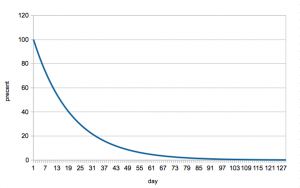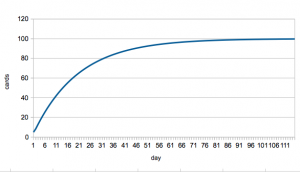Japan
Should I move to Japan to learn Japanese faster?
The general consensus of people who’ve tried this is that being in Japan offers no benefit to learning Japanese and can even be a distraction. Unless you can already conduct yourself in Japanese, you will find little benefit. See this link for a few anecdotes.
I’m going to Japan, what should I study?
That all depends on your level of Japanese and what you intend to do while you are in Japan. But you can anticipate what situations you will find yourself in while you are in Japan and study specificlly the things which will be most useful.
It might be better to make sure that you absolutely know a few things rather than trying to learn too much in a short time. Knowing a lot but not very well, will not give you the confidence to speak and you will probably end up not even trying out Japanese. Being able to speak a few canned sentences confidently will make it more likely that you will actually use what you learned.
If you know very little Japanese, get a phrase book and study phrases or questions that you anticipate using. Basics like “hello” (konnichiwa), “good-by”(sayonara), “please”(onnagai shimasu), “thank you”(arigatou gozaimashita), “pleased to meet you”(hajimemashite), “pardon me”(sumimasen) are good places to start for the absolute beginner. Learn to recognize the kanji characters for the neighborhoods, restaurants, attractions that you will be visiting and learn to pronounce their names in Japanese.
If you know a fair amount of Japanese already consider reviewing the words and phrases that you anticipate using most and practice listening comprehension. Also, consider developing pre-made conversations where you can talk at length. Things like “I am from America and I will be in Japan for 2 weeks. We have been to some very nice restaurants and I am going to a hot spring Hakone in 2 days. Have you been to Hakone? What are your favorite things to do in Hakone?” etceteras. If you have time, consider practicing conversations with friends or get an account on italki or rhinospike.
The Japanese Language
Should I move to Japan to learn Japanese faster?
The general consensus of people who’ve tried this is that being in Japan offers no benefit to learning Japanese and can even be a distraction. Unless you can already conduct yourself in Japanese, you will find little benefit. See this link for a few anecdotes.
How long does it take to learn Japanese?
The US Department of State puts it at over 2200 hours of study. That’s 4 times, what they anticipate for Spanish or Swedish. See this page for more.
Anki
I already know some Japanese, what should I do?
If you know a few hundred vocabulary, or even a thousand or two, you can use the reschedule function to limit the amount of time spent staying words you already know.
Let’s say you know a thousand words, but they’re mixed in your deck with a bunch of words you’ve never seen. The cards are a little rusty and you still want to study them, but don’t need to see them every day – once a month is good to start. But there are some words you don’t know and you need to study them every day.
Open your deck in the browser and hopefully, most of the words that you know will be at the beginning. You don’t have to be perfect, but try to select the range of cards where most of your known cards are selected and unknown cards aren’t needlessly selected. Then go to edit > reschedule and set it to a range – something like 20-45. This will make their starting interval between 20-45 and they won’t all be due on the same day.
Now, when going through these cards, if you know the word, marking it good or easy, you won’t see it until next month or so. If you don’t know the word, then failing the card will set it back to seeing it every day, while pressing hard you’ll see it in a few days. You should probably suspend the cards you know really well. Once you’ve gone through all the rescheduled cards, your deck should be pretty well sorted and you won’t be spending too much time studying things you know already.
If I stop adding new cards, how fast will my reviews go down?
This depends on how many cards you get correct. If you consistently get 80% correct, the amount of cards after the first week will be about 75% of the previous week. After a month your workload will be about 25% and 3 months later, it’ll average around 1-2 percent of the original workload. Note that, a small increase or decrease in your correct percentage will drastically change these estimates.
How many new cards should I add to anki each day?
Only add as many new cards as you can keep up with the reviews. A good starting point is around 7 cards for every hour per day that you are prepared to study. After a few weeks, if you have too few/many reviews, adjust the amount of new cards until you have a manageable number of reviews every day.
Mathematically, it will depend on the percentage of cards you get right. If you consistently answer 80% correct and add the same amount of cards each day, after 60 days, your workload will stabilize around 20 times the amount you add every day. So if you add 10 cards every day and get 80% correct, you can plan on answering approximately 200 cards every day.
What if I have too many reviews?
If you have too many reviews, consider not adding new cards for a while until you get the reviews down to a manageable number. If you still can’t finish most of the reviews every day, consider creating a filtered deck with the order set to “Increasing intervals” to show your most urgent reviews first. If you get WAY behind on reviews, this may work better.
When will my daily Anki workload stabilize?
The first few weeks, the number of cards due each day ramp up quickly, but over time they gradually stop increasing. After the first month, you will have 80% of your long term workload. If you’ve been adding the same amount of new cards every day for 2 months, the number won’t materially change much.

